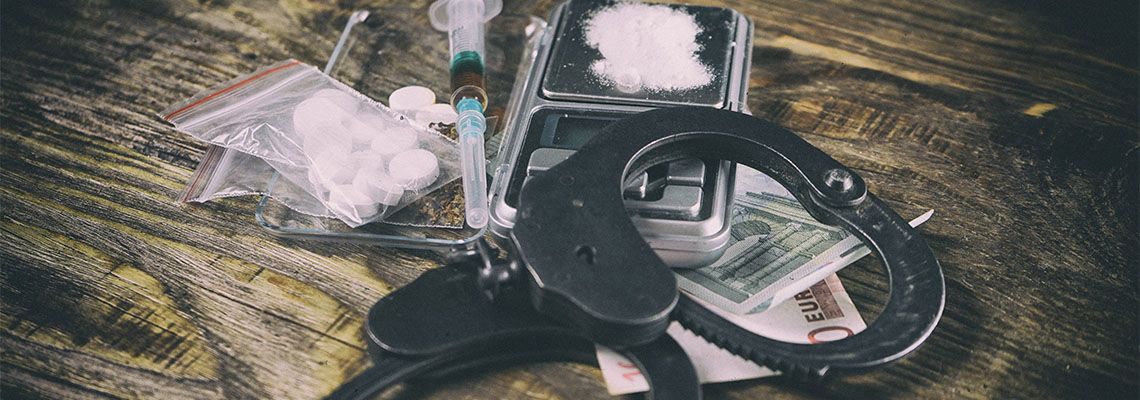Digital evidence can shape white-collar investigations long before anyone is arrested. Emails, chat logs, accounting files, cloud records, and even routine device data can be pulled into a timeline that prosecutors can use to explain who did what, when, and why.

Drug Charges FAQ
If you find yourself facing drug charges in Westchester County, New York, or its surrounding areas, it's important to be well-informed about your legal rights and the legal process. The Law Office of Michael D. Litman, PLLC is here to provide honest, trustworthy, and collaborative legal counsel to help you navigate this challenging situation. No matter your situation, it’s essential you get the answers to your most important questions, as well as understand the criminal defense services available to you.
Drug Charges in New York
Drug charges in New York can encompass a range of offenses, including drug possession; possession with intent to sell; selling, distributing, and/or manufacturing of drugs; and more. Understanding the specifics of these charges is crucial, because the consequences can be severe. The following covers some frequently asked questions and answers about drug charges.
I just want this to go away. Should I accept a plea deal?
When facing drug charges, the pressure to make the problem disappear can be overwhelming. However, accepting a plea deal without proper legal advice may not be in your best interest and may leave you with the worst possible penalties. Consult with an experienced criminal defense attorney before making any decisions. They will help you evaluate the potential consequences and determine if there are better alternatives to resolve your case.
Can I be charged for driving under the influence of drugs?
Yes, you can be charged for driving under the influence with drugs—also known as a DWAI. Driving under the influence of drugs is a serious offense with severe legal repercussions, including the loss of driving privileges, fines, and jail time. Understanding the laws and potential consequences is vital. A skilled attorney can help you navigate the legal process, explain the tests involved, and protect your rights throughout the legal proceedings.
When are police allowed to search my person, vehicle, or home?
Police are allowed to search your person or car if an officer reasonably suspects illegal activity is occurring. Police are required to obtain a warrant before searching your home, except if they are invited in, or if they have probable cause to believe a felony has been committed or is about to be committed—also known as “exigent circumstances.”
Understanding the boundaries of police searches is crucial to protect your rights. In the United States, law enforcement must follow strict legal procedures when conducting searches. An attorney can assess whether your rights were violated during a search and, if so, develop a legal defense strategy to challenge the evidence.
I hear a lot about states relaxing marijuana and other drug laws. What is the situation in New York?
Laws regarding marijuana and other drugs vary by state, and they continue to evolve. In New York, there have been significant changes in marijuana legislation, but other drugs remain strictly regulated. Understanding the current legal landscape is essential.
In New York, recreational use of marijuana has been decriminalized, and medical marijuana is available for qualified patients. However, it's important to be aware of the specific regulations and limitations surrounding these changes. Adults 21 and older are allowed to possess up to 3 ounces of cannabis, and up to 24 grams of concentrated cannabis.
What does it take to be charged with possession with intent to distribute?
To be charged with possession with intent to distribute, law enforcement typically looks for evidence like larger quantities of drugs, paraphernalia associated with drug sales, and communication records that suggest an intent to distribute. Possession with intent to sell is a class B felony. Even one offense can put someone in prison for up to nine years.
The penalties for this charge can be severe and may include significant prison time. An experienced attorney can help you understand your specific case and options for defense.
What are controlled substance “Schedules”?
Schedule I drugs have a high potential for abuse and no accepted medical use, while Schedule V drugs have a lower potential for abuse and accepted medical uses. Controlled substances are categorized into schedules based on their potential for abuse and medical use. Understanding these schedules can help you grasp the severity of your charges. Being charged with a drug from a higher schedule may result in more severe penalties. An attorney can explain how these schedules affect your case and potential sentencing.
I have a valid prescription for the drugs that police took. What are my options?
If you have a legitimate prescription for the seized drugs, you may have a valid defense. In this situation, it's crucial to consult with an attorney who can help you gather the necessary documentation to prove that you had a legal right to possess the drugs. They can guide you through the process of presenting this evidence in court and work to have the charges against you dropped.
Do I need an attorney to defend me?
Having a skilled criminal defense attorney by your side is crucial when facing drug charges. The legal system is complex, and the consequences of a drug conviction can be severe.
An experienced attorney will provide guidance, protect your rights, and build a strong defense strategy tailored to your case. They will review the evidence, explore legal defenses, and negotiate with the prosecution on your behalf. They can also represent you in court and work to secure the best possible outcome, whether that's an acquittal, reduced charges, or a more lenient sentence.
Answering Your Questions About Drug Charges
When facing drug charges, it's normal to have numerous questions and concerns. The Law Office of Michael D. Litman, PLLC, is here to provide the support and legal representation you need. Our experienced attorney will work diligently to protect your rights and pursue the best possible outcome in your case. If you or someone you know is facing drug charges in or near Westchester County, New York, or the surrounding areas of White Plains, Harrison, or Yonkers, contact us for a confidential consultation and let us help you through this challenging time.
RECENT POSTS
Facing criminal charges can be an overwhelming and stressful experience, particularly when they could escalate from a misdemeanor to a felony. Many people may not realize that what starts as a seemingly minor offense can, in certain circumstances, turn into something far more serious with much more severe consequences.
In New York, misdemeanors are divided into three main categories: Class A, Class B, and unclassified misdemeanors. Class A misdemeanors are the most serious, while Class B misdemeanors are less severe, and unclassified misdemeanors often involve specific statutes such as traffic or local ordinances. Although misdemeanors are less severe than felony offenses, they can still carry significant penalties, including jail time, fines, and a lasting criminal record.




